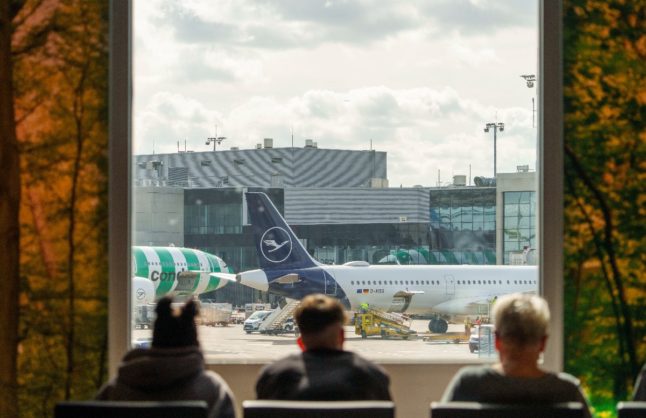What’s this all about?
While we’ve all become used to describing vaccines by the names of the companies who produce them, it turns out that the same vaccines can appear in numerous different guises.
In this instance, we’re mainly concerned with two key versions of AstraZeneca: one produced in Europe under the brand name Vaxzevria, and one produced under licence by India’s Serum Institute, which is marketed as a Covishield.
Though the brand names are different, the vaccine is identical: it is produced with the same ingredients to the same specifications. The only key difference is that the version made in India is not licensed within the EU.
Until recently, this hadn’t been much of an issue, since Covishield is largely distributed in India, Africa and the United Kingdom.
However, with the roll-out of the EU’s vaccine passport, the Indian-produced AstraZeneca vaccine has hit a snag: only vaccines approved by the European Medicines Agency (EMA) fall under the scope of the vaccine passport scheme, so travellers who’ve been immunised with Covishield have been having headaches when travelling around the EU.
READ ALSO: Germany cracks down on fake Covid vaccine documents
What is the EU saying?
A spokesperson for the European Commission told the The Local that the acceptance of Covishield for travellers was a matter for individual Member States – such as Germany – to decide.
“At present, Covishield is not authorised for placing on the market in the EU,” they said. “However, it has completed the World Health Organisation (WHO) Emergency Use Listing process. EU Member States can therefore decide to allow entry to those vaccinated with Covishield.”
This means that, while it may not be valid for the EU-wide digital, those who have had a shot of the Indian-manufactured vaccine should nonetheless be allowed to enter certain European countries without a negative test or proof of recovery – and, depending on that country’s rules, without needing to quarantine.
READ ALSO: EXPLAINED: How to get your digital Covid vaccine pass in Germany for EU travel
This also applies to other versions of popular vaccines that have been manufactured elsewhere in the world, such as the third version of AstraZeneca – SK Bio – which is manufactured in South Korea, and other versions of Pfizer/BioNTech, Moderna and Johnson & Johnson.
OK, so what’s Germany saying?
Under pressure from AstraZeneca’s Indian manufacturing partner and the Indian government, Germany has been one of a number of European states to say that they will now accept Covishield for travel purposes.

The European version of AstraZeneca is the same as the Indian version in all but name. Photo: picture alliance/dpa/LongVisual via ZUMA Wire | Camilo Erasso
That means that travellers from the UK, India and Africa who have been inoculated with the Covishield version of the vaccine will be permitted to enter the country, though they may have some issues with onward travel to places like France, where Covishield is still unrecognised.
Why did Germany change its mind?
There could be numerous reasons for this, but the most likely is that the version of AstraZeneca manufactured by India’s Serum Institute is identical to its European counterpart in all but name.
Since it has been formally recognised by the WHO, Germany is also at liberty to set its own rules on whether to accept travellers with Covidshield, meaning it has some flexibility to diverge from EU-wide standards.
As mentioned above, the European Union and its Member States have also been under pressure from both the Indian government and the CEO of India’s Serum Institute to make allowances for the non-EMA approved vaccine.
READ ALSO:
- Germany lifts ban on travellers from UK, Portugal and India
- EXPLAINED: Germany’s new travel rules for the UK, Portugal and India
At the start of July, Indian Foreign Minister Subrahmanyan Jaishankar tweeted to say that he had raised the Covishield issue with European leaders at the G20 Summit.
According to reports in Reuters, India has offered reciprocal recognition of the EU Covid Pass for travel to India in exchange for widespread recognition of its AstraZeneca vaccine. This would mean that anyone with an EU vaccine passport could avoid quarantine when travelling to India.
Meanwhile, Serum Institute of India CEO Adar Poonawalla said on Twitter in late June that he had also “taken this up at the highest levels” in Europe.
I realise that a lot of Indians who have taken COVISHIELD are facing issues with travel to the E.U., I assure everyone, I have taken this up at the highest levels and hope to resolve this matter soon, both with regulators and at a diplomatic level with countries.
— Adar Poonawalla (@adarpoonawalla) June 28, 2021
How do I know if I’ve been vaccinated with Covishield?
The easiest way to check if you’ve been vaccinated with Covishield is to look at your vaccination booklet and see what brand name is listed on there.
If your vaccine certificate states only AstraZeneca, you can check the batch number to find out which version you were vaccinated with.
Where else in Europe can I travel?
As of June 12th, 15 countries in Europe had officially agreed to recognise Covishield for travel, according to a tweet by WHO chief scientist Soumya Swaminathan.
In alphabetical order, these are: Austria, Belgium, Bulgaria, Finland, Germany, Greece, Hungary, Iceland, Ireland, Latvia, the Netherlands, Slovenia, Spain, Sweden and Switzerland.
However, with India’s reciprocal offer on the table and an ever-expanding list of countries agreeing to accept the vaccine, more European countries could well be added to this list in the coming weeks.



 Please whitelist us to continue reading.
Please whitelist us to continue reading.
Member comments